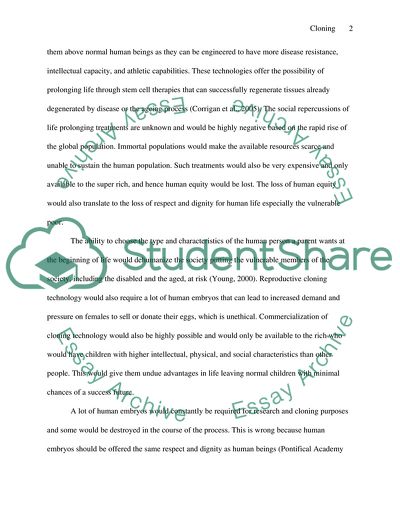Cite this document
(The Possibility of Cloning Human Beings Coursework, n.d.)
The Possibility of Cloning Human Beings Coursework. https://studentshare.org/technology/1778173-research-cloning
The Possibility of Cloning Human Beings Coursework. https://studentshare.org/technology/1778173-research-cloning
(The Possibility of Cloning Human Beings Coursework)
The Possibility of Cloning Human Beings Coursework. https://studentshare.org/technology/1778173-research-cloning.
The Possibility of Cloning Human Beings Coursework. https://studentshare.org/technology/1778173-research-cloning.
“The Possibility of Cloning Human Beings Coursework”. https://studentshare.org/technology/1778173-research-cloning.


